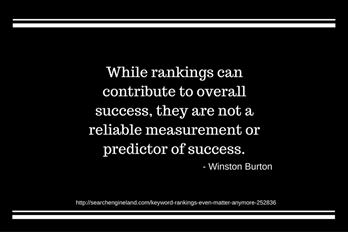Overview
Business owners often find themselves frustrated when they see their chosen keywords ranked highly on search engine results pages, but yet, do not see any more traffic than they did before ranking for them. What many of them do not understand is that the keywords they believe their consumers are searching for are not what they are using. If no one is searching for top ranking keywords, there won’t be any increase in traffic.
Nate Dame, author of “Why You Should Never “Do Keyword Research Again” shares, “The problem with traditional keyword research is that it is still rooted in PPC: identify target keywords, examine the level of competition, place a bid. That’s not how SEO works see here. Starting an SEO campaign based on the wrong research is a recipe for low rankings, low traffic, and Google penalties.”
Proper keyword research is imperative for optimal keyword ranking for terms consumers use. SEO professionals Sydney need to think outside of the box when it comes to finding keywords people are searching for, they must consider:
- Target audience
- Possible terms used
- Competitor keywords and placement
By using these factors, hundreds of keywords can usually be generated that could bring in a great deal of traffic to a site. The next problem is that bringing more people to a website does not automatically mean the business becomes a success.

“While rankings can contribute to overall success, they are not a reliable measurement or predictor of success,” according to Winston Burton from Search Engine Land.
Keyword rankings only bring people to a site, according to a study that shows the average top listing in Google receives 33 percent of traffic. Keyword rankings do not translate to success, unless the only goal is to increase traffic to a website. Conversion is usually the ultimate goal because it increases leads or revenue.
Treefrog, an Internet marketing business, explained it best, “The importance of the conversion rate becomes clear. If your site doesn’t persuade its visitors to “convert”, then it doesn’t fulfill its intended function, no matter how many visitors are brought in with effective SEO.”
What’s the trick to converting site visitors? Content.
Content that converts is what will turn site visitors into buyers. What gets tricky is the type of content that converts. You must “write for people, not search engine spiders,” says David Risley, columnist for Search Engine Journal.

Trust Paves the Road to Higher Conversions
In our Content Marketing Guide, we share information on how to write for people rather than search engines. One of the biggest points they try to deliver to their followers is that trust means everything to online buyers. The best way to develop trust in buyers is by being specific. A research study by UCLA found that financial advisors were able to gain trust by giving their clients exact numbers. Therefore, if they wrote a blog post with figures, they found conversion rates were higher when they used figures like “6.4%” rather than “around 6%.”
Other ways to foster trust are:
- Empathize with site visitors instead of sympathizing with them.
- Tell people a story they can identify with at the time they visit the site.
- Be genuine.
- Expressing frustration in a professional manner show site visitors you are human.
We discussed in our article on Turning Content into Leads The Right Way, how content used correctly can create the emotions that motivate visitors to learn more and eventually become customers. They do not just do this in a vacuum.
By tapping into emotions, you tap into the core of your visitors’ challenges.
Keywords and Content for the Masses
As content is generated based off what people want to read, keywords can be forgotten about easily. This can lead some people to believe that keywords do not have a place in content anymore. The keywords will come out of content naturally. As much as we all would love for that to be true – it simply is not true. Google’s algorithm looks for specific words in content to help it understand where to rank it. It is essential content has keywords that Google users are using.
This means that first content must be written for people, and then the search engine optimization comes later. Keywords can be placed in meta titles, descriptions, headers, etc. after it serves the reader.
Keywords Are Alive and Well, and So Is SEO
Don’t believe the hype about SEO being dead. It’s alive and well, along with keywords. SEO has changed, though. It’s not simply thinking about words people might be searching for and throwing them haphazardly on a site. It is about using the keyword tools Google gives us to reveal what consumers are truly searching for when they are online. It is also about taking those keywords and using them in content in a way that does not seem obvious to readers because while the search engine bots need to use them, readers really just want amazing, high quality content they can use to make a decision about buying a product or service.
Are you interested in learning more about keywords your consumers are searching for on Google? Give us a Shout and receive a free initial consultation with our experts from marketing agency in Melbourne!
